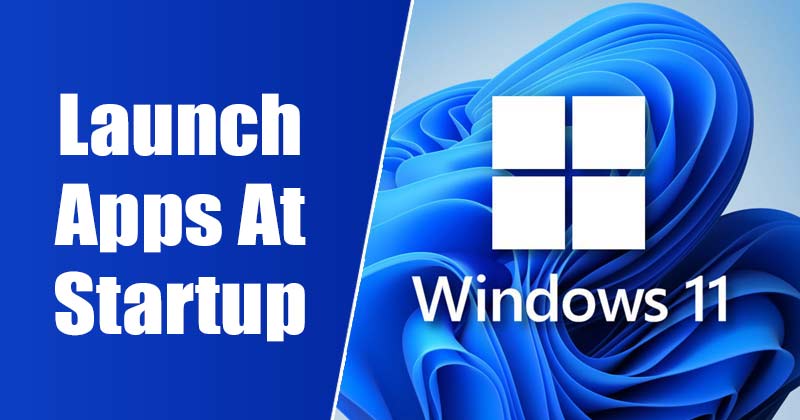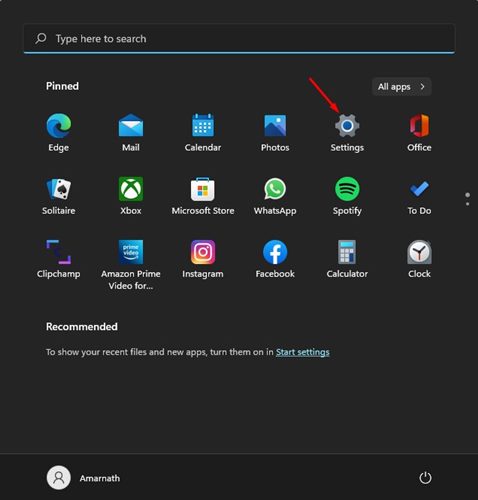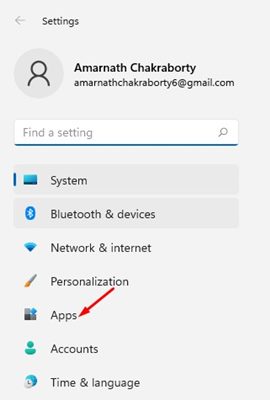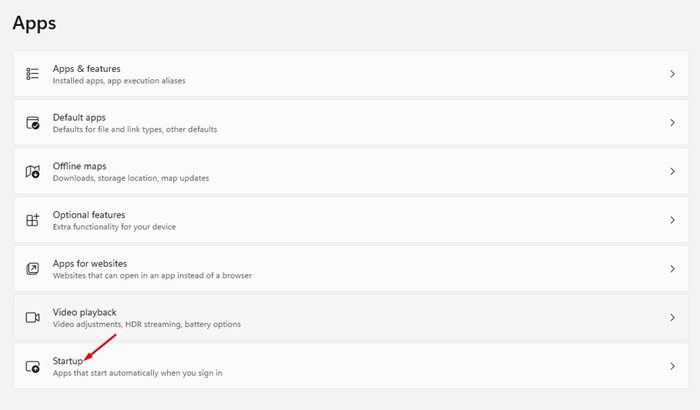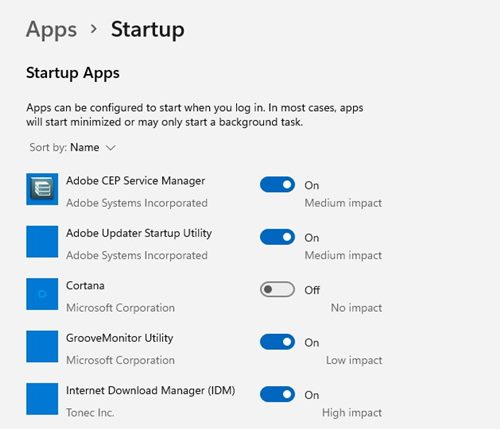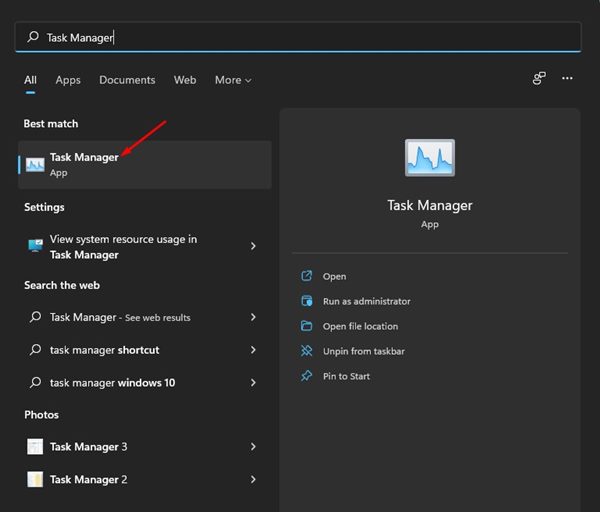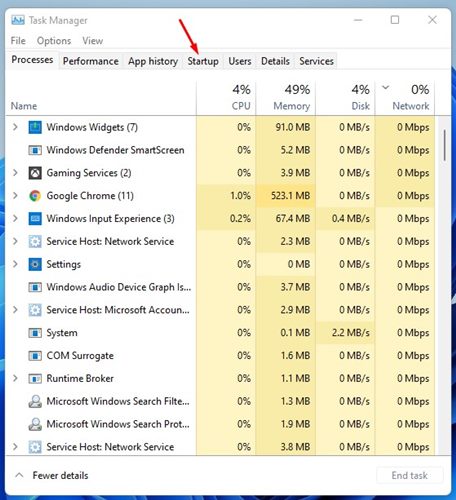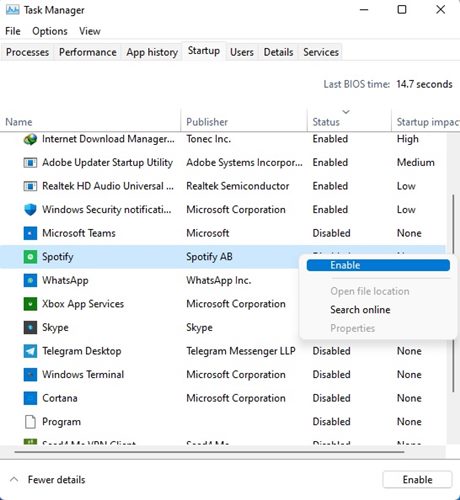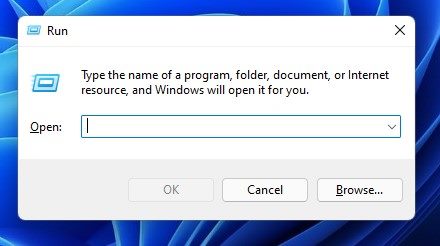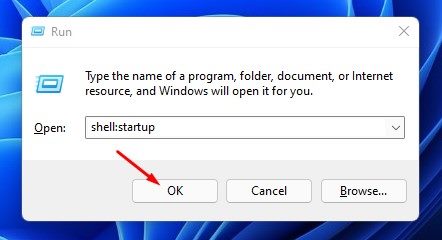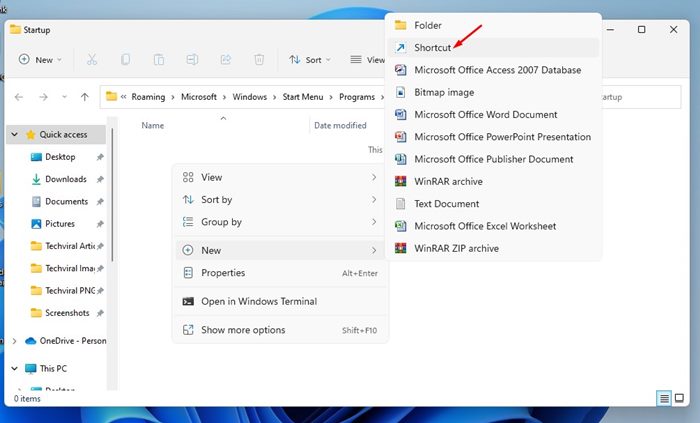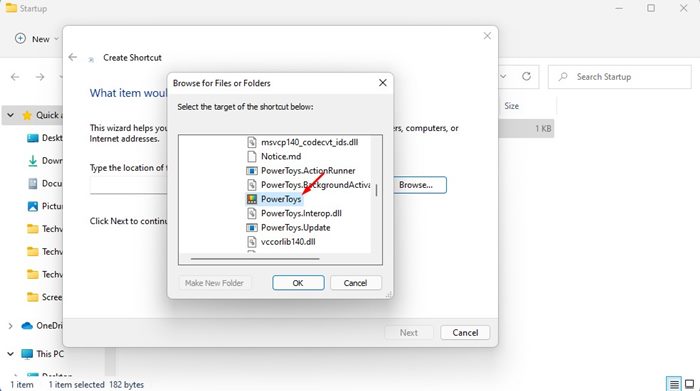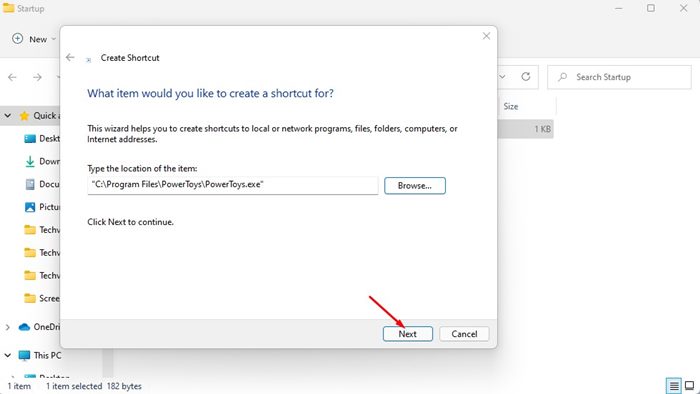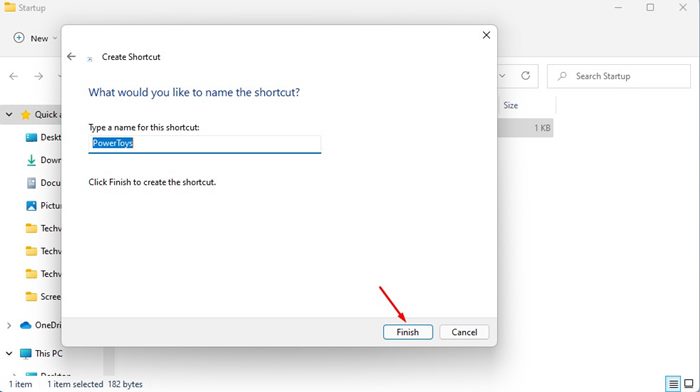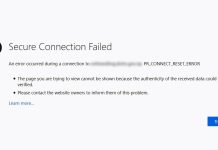So, if you are looking for ways to launch apps during startup on Windows 11, you are reading the right guide. In this article, we will share a step-by-step guide on how to launch apps during startup on Windows 11.
How to Launch Apps At Startup in Windows 11 (3 Methods)
Please note that there are quite a few ways to launch apps at startup on Windows 11, but we have listed the one that works and requires no registry editing. Let’s check out.
1) Launch apps at Startup via Settings
In this method, we will use the Windows 11 Settings apps to launch apps automatically at startup. To do that, you need to follow some of the simple steps shared below.
First of all, click on the Windows 11 Start button and select Settings.
On the Settings app, click on the Apps section, as shown in the screenshot below.
On the right pane, scroll down and click on the Startup section as shown below.
Now, you will see a list of apps that you can launch at startup. You need to go through the list of apps.
Simply turn on the apps that you want to launch at startup automatically. Once done, restart your PC.
That’s it! You are done. This is how you can launch apps during startup on Windows 11 operating system by making some changes to the Settings.
2) Launch Apps at Startup via Task Manager
In this method, we will utilize the Windows 11 Task Manager to launch apps at startup. Here are some of the simple steps you need to follow.
First of all, open Windows 11 Search and type in Task Manager. Next, open Task Manager from the list.
On the Task Manager, switch to the Startup tab, as shown in the screenshot below.
On the Startup page, right-click on the app which you want to launch at startup and select Enable.
That’s it! You are done. This is how you can enable apps to launch at startup in Windows 11 via Task Manager.
3) Adding Apps to the Startup Folder
On Windows 11, you get another option to launch apps during startup. You can manually add apps to the startup folder to launch them at startup. Here’s what you need to do.
First of all, press Windows Key + R button to open the RUN dialog box.
On the RUN Dialog box, type in shell:startup and press the Enter button.
This will open the Startup folder on your File Explorer. Now right-click anywhere on the screen and select New > Shortcut.
On the Type the location field, click on the browse button and locate the .exe file of the program you want to launch. Next, click on the Ok button.
Once done, click on the Next button and type a name for this new shortcut. After assigning the name, click on the Finish button.
That’s it! You are done. You can add more apps to the Startup folder to launch them automatically at Startup. It’s pretty easy to add apps to the Startup folder on Windows 11. You can follow any of these three methods to launch apps during Startup on Windows 11. I hope this article helped you! Please share it with your friends also. If you have any doubts related to this, let us know in the comment box below.
Δ
